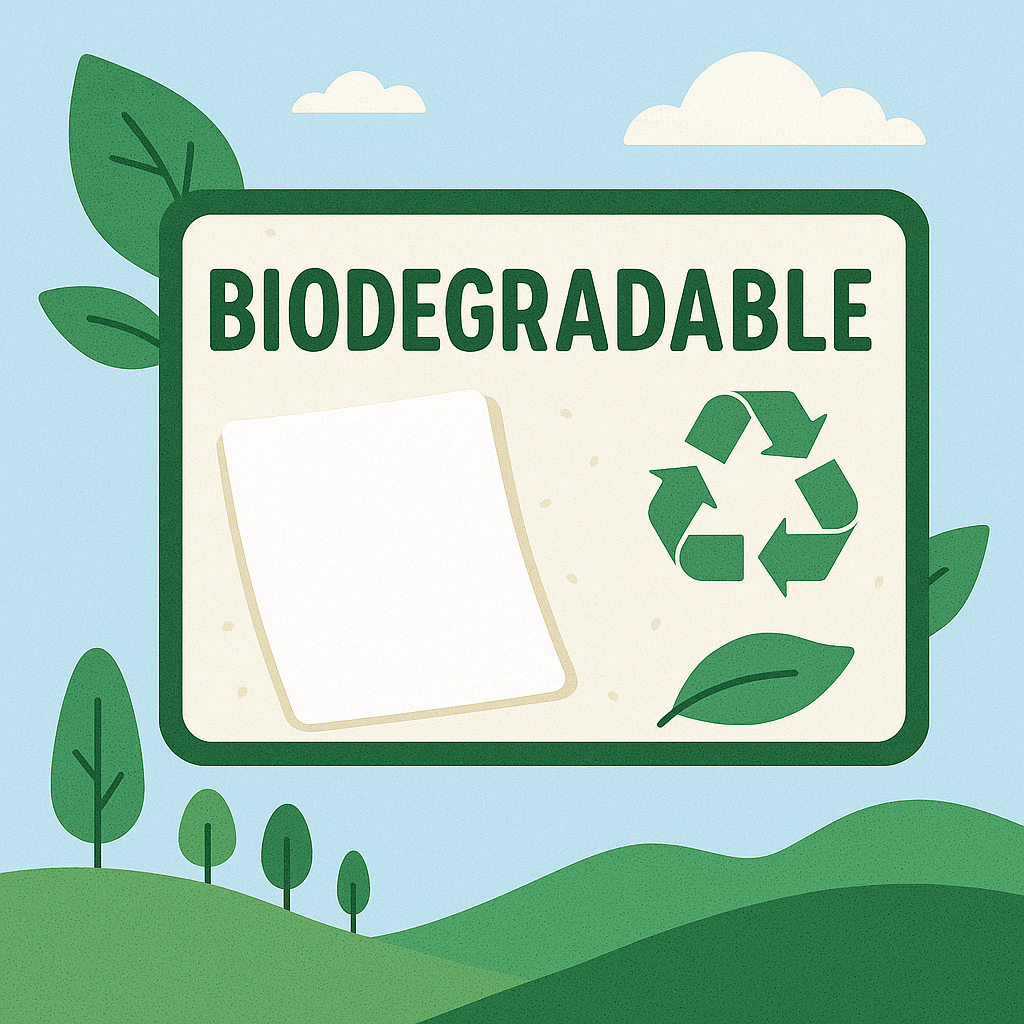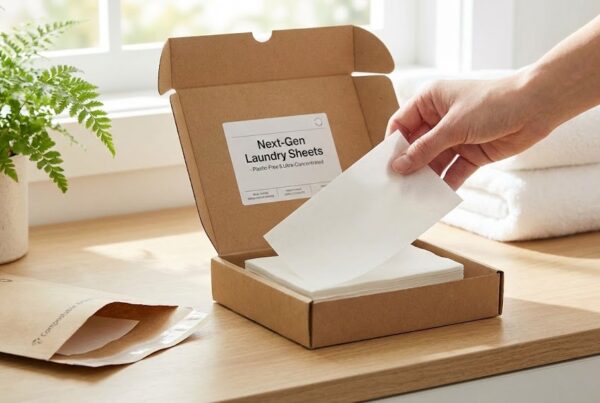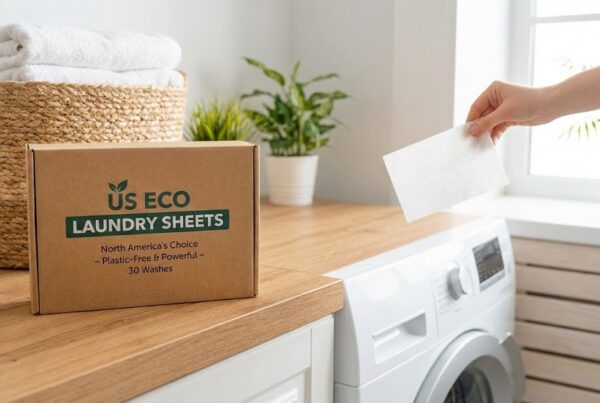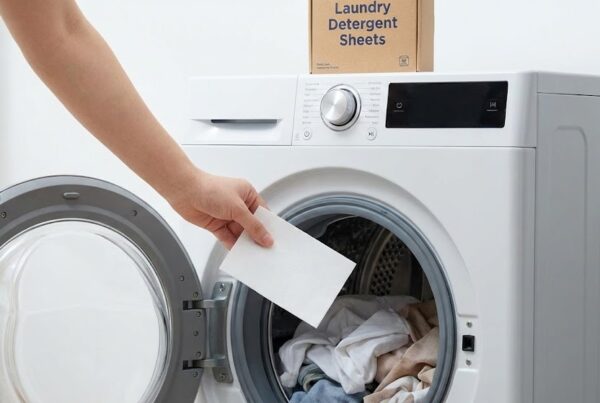Are Laundry Detergent Sheets Biodegradable?
An Environmental & Health Breakdown
As modern consumers demand greener choices, laundry detergent sheets are gaining popularity for their convenience and sustainability. But are they truly biodegradable? And more importantly—are they safe for your body and the environment?
In this article, we break down what makes a detergent sheet biodegradable, how it impacts the planet, and whether it’s the right choice for your home.
What Does “Biodegradable” Mean in Laundry Products?
“Biodegradable” means that the material can be broken down by natural organisms like bacteria or fungi into non-toxic substances like water, carbon dioxide, and biomass—within a reasonable period and without leaving harmful residues.
Not all laundry products, even eco-labeled ones, meet this standard. Some degrade partially, while others leave behind microplastics, dyes, or chemical byproducts.
Key Components of Laundry Detergent Sheets
To assess biodegradability, we need to look at the ingredients and packaging:
| Component | Biodegradable? | Notes |
|---|---|---|
| Water-soluble film | ✅ Yes | Dissolves in water, no residue |
| Plant-based surfactants | ✅ Yes | Derived from coconut, corn, or sugarcane |
| Fragrances (essential oils) | ✅/❌ Varies | Natural oils degrade, synthetic ones may not |
| Optical brighteners | ❌ No | Often petroleum-based and persistent in water |
| Plastic packaging | ❌ No | Unless labeled compostable or biodegradable |
A fully biodegradable detergent sheet will not only break down in your washer but also leave no toxic chemicals in your greywater system.
Environmental Benefits of Biodegradable Detergent Sheets
-
Less Plastic Waste
Traditional detergents come in bulky plastic jugs. Even pods are wrapped in PVA (polyvinyl alcohol), which some scientists question as truly biodegradable. Detergent sheets eliminate this completely. -
Low Carbon Footprint
Because they are lightweight and compact, laundry sheets require less energy to ship and produce. -
Greywater-Safe
Many biodegradable detergent sheets are greywater-safe, meaning your wastewater can be reused for gardening or irrigation without harming plants. -
Marine Life Friendly
Biodegradable surfactants do not accumulate in oceans or harm fish and coral reefs, unlike conventional chemicals like SLS or phosphates.
Are Laundry Sheets Safe for the Human Body?
Yes, high-quality, biodegradable laundry detergent sheets are generally safe for humans, especially those labeled:
-
Fragrance-free
-
Hypoallergenic
-
Dermatologist-tested
-
Free of SLS, parabens, phthalates, and optical brighteners
For babies, those with eczema, or people with allergies, sheets made with non-ionic, plant-based surfactants and no dyes or synthetic scents are your safest bet.
Biodegradable vs Compostable: What’s the Difference?
While all compostable materials are biodegradable, not all biodegradable items are compostable. Compostable means:
-
It will break down in a compost environment (not just in soil)
-
Leaves no toxic residues
-
Is safe for plants and animals in compost
Some laundry detergent sheet brands are now using home-compostable wrappers, making the entire product zero waste.
How Long Does It Take to Biodegrade?
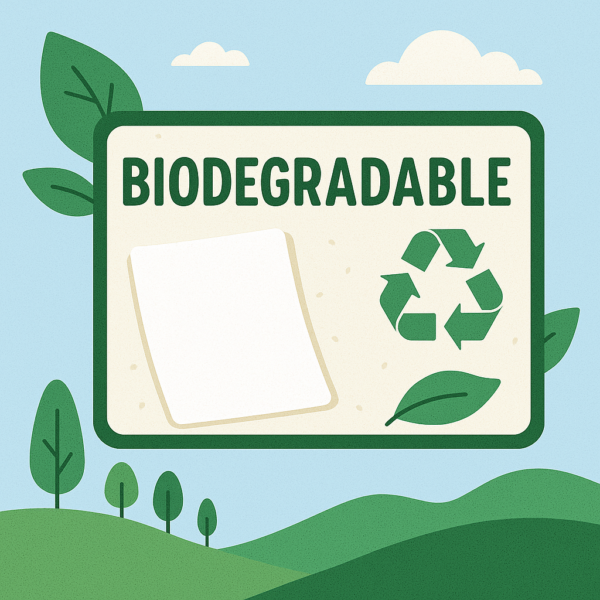
Most biodegradable detergent sheets:
-
Dissolve completely in water during the wash cycle
-
Break down in 30–90 days when exposed to microbial activity in nature
-
Do not contribute to microplastic pollution (a growing issue with synthetic detergents)
Check your product’s certification labels like:
-
OECD 301/302 Test Passed
-
EU Ecolabel
-
USDA Certified Biobased
-
OK Compost
Certifications That Matter
Look for brands that verify their environmental claims with independent certifications. Some credible labels include:
| Certification | What It Means |
|---|---|
| EPA Safer Choice | Ingredients meet strict safety criteria |
| EcoCert | Organic & biodegradable sourcing |
| Cradle to Cradle | Full product lifecycle sustainability |
| BPI Certified Compostable | Packaging breaks down safely |
Quick Tip: Read the Label!
Avoid misleading marketing with vague terms like “natural” or “green.” Look for transparent ingredient lists and 3rd-party validations.
Beware of:
-
Optical brighteners
-
Artificial fragrances
-
Formaldehyde releasers
-
Phosphates or nonylphenol ethoxylates
Final Thoughts
Not all laundry detergents are created equal. If you’re looking to reduce your environmental footprint without sacrificing cleaning power, biodegradable laundry detergent sheets are a top choice.
They help you:
-
Ditch plastic jugs
-
Avoid skin irritants
-
Protect water systems
-
Embrace a minimalist, eco-conscious lifestyle
Make sure to double-check ingredient lists, third-party certifications, and packaging claims. When used wisely, laundry sheets offer a zero-waste, low-tox, and high-convenience alternative to traditional options.

